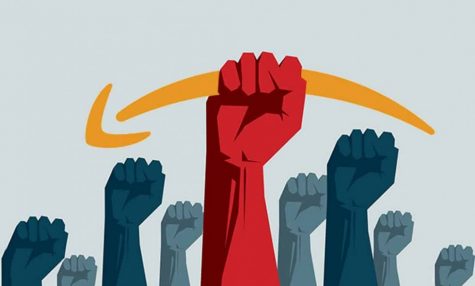Amazon employees push to unionize
March 17, 2021

Bessemer, Alabama, has recently been the center of news cycles nationwide. The relatively unknown city, just outside of Birmingham, is the center of a jarring development in organized labor efforts. Amazon employees at the Bessemer warehouse, nicknamed “BAmazon,” are voting on whether to establish the corporation’s first warehouse union in the U.S.
The employees, around 5,800 in number, will be voting until March 29 on the issue. Organizers have been attempting to unionize Amazon employees for years, but cases like their Seattle call center, which was shuttered after unionization efforts, have discouraged these initiatives.
Bessemer’s workers have thus far managed to get support from other labor organizations like the Screen Actors Guild along with Black Lives Matter and others.
Naturally, the possibility of Amazon employees unionizing is shocking is because of the company’s problematic labor history.
Among the largest corporations on the planet, Amazon has amassed its wealth in no small part due to its harmful labor practices. The company has been accused of overworking employees without overtime pay, creating a pressurized culture that encourages employees to neglect their own wellbeing, and even risking the health of its employees.
The company has also been notable for punishing employees who fail to comply with their production model. Just last spring, they fired employees who complained about the warehouse safety conditions during the rise of the COVID-19 pandemic in an act of plausible retribution. Employees even described being surveilled to the extent that they needed to urinate in an empty water bottle.
Efforts to support “BAmazon” employees have heated up as the union vote has progressed and caught more media attention.
Social media posts and infographics have been shared and elevated the workers’ publicity. Even President Joe Biden released a video in support of the employees along with other politicians and activists.
The fight for the Bessemer union to come about has moved to the political sphere as well: an upcoming Senate hearing on wealth inequality is set to mention it, although Amazon founder and CEO Jeff Bezos will notably be absent. Boycott calls have been made against Amazon as well, but these have not been officially adopted or espoused by Bessemer workers.
BAmazon’s efforts to construct organized labor movements are also not isolated historically. The Mine-Mill union traveled to Bessemer in 1918 and again in 1933 to organize steel workers at the Tennessee Coal, Iron, and Railroad Company. Despite the Ku Klux Klan’s violent threats against them, Mine-Mill managed to win some reinstatements for Bessemer workers at the time. Not only that, but union leaders claim that BLM helped inspire the union drive, citing the predominantly Black population of BAmazon employees. These leaders point out the undeniably racialized impact of poor labor policies on Black folks and other people of color, thus making the need for racial justice in labor movements clear.
The success of this unionization effort could have serious implications for both Amazon and organized labor movements as a whole. Amazon has experienced immense growth throughout the course of the COVID-19 pandemic; as more people stayed home, their convenient delivery and wide selection came in handy. With this economic boom, they also gained more influence, making this unionization struggle a potential tipping point. Consequently, this could inspire workers to take a stand against stagnant wages and poor working conditions nationally and globally.
According to Michael Goldfield, Wayne State University professor emeritus of political science, the formation of a Bessemer Amazon union could set off a wave of union drives, making the stakes significant for Amazon employees everywhere.



















Leave a Comment